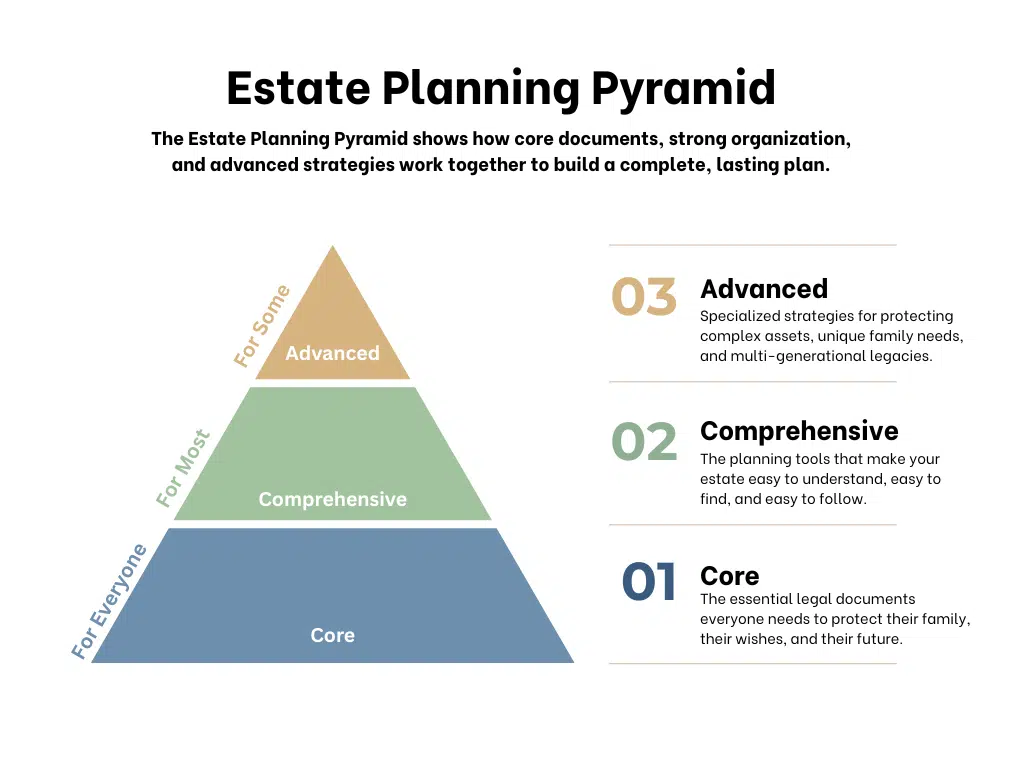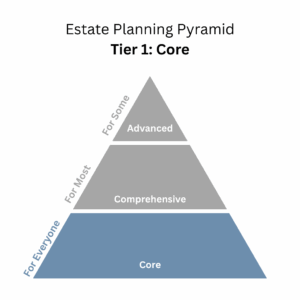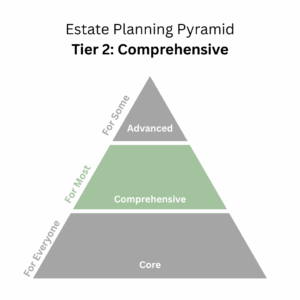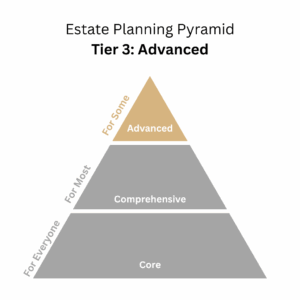Estate planning does not have to be confusing.
The Estate Planning Pyramid Information Hub
The Estate Planning Pyramid is a framework designed to help you build a complete estate plan from the ground up.
It starts with the Core level, which includes essential documents and decisions that every adult should have in place. The Comprehensive level adds tools and information that apply to most people, helping you get organized and think through key aspects of your estate. The top level, Advanced, covers more complex topics such as trusts, business succession, and family foundations that are relevant in specific situations.
Each level builds on the one below it, providing a clear and structured path forward.

Key Things To Know
Estate planning is not one decision. It is a set of documents and choices that work together to protect your future.
- Core documents protect everyone: Wills, powers of attorney, and healthcare directives are essential no matter your wealth, family size, or age.
- Organization matters just as much as legal paperwork: Even the best plan fails if no one knows where to find it.
- Not everyone needs advanced planning: Trusts, foundations, and business succession strategies are powerful tools, but they are not required for every estate.
- Your plan should grow as your life changes: Marriage, children, career changes, retirement, and new assets are natural reasons to update.
- Good planning protects both financial and emotional legacies: Asset transfers are important, but so are final wishes, personal letters, and memories that shape your family's future.
- Starting is more important than finishing perfectly: You do not need an expert-level estate plan to make a difference. Even small steps today can prevent major problems later.
Explore Your Estate Planning Pyramid
Frequently Asked Questions
Have questions about how the Estate Planning Pyramid works? Here are some quick answers to help you get started.
Disclaimer: The information provided on this website and by Buried in Work is for general informational purposes only and should not be considered legal advice. Please consult with a qualified attorney or subject matter expert for advice specific to your situation.



